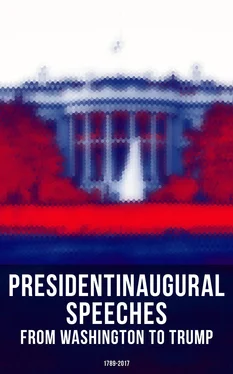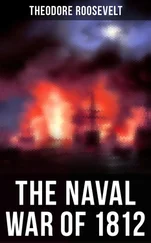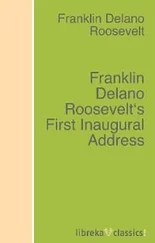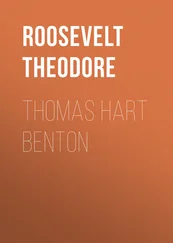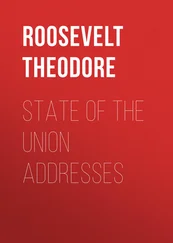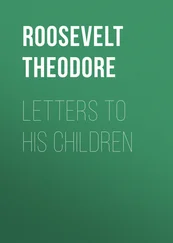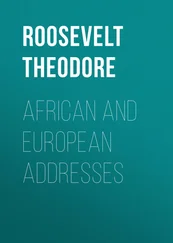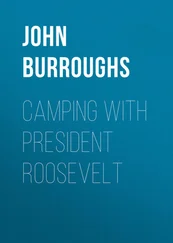They have not, it is true, taken into their own hands the hatchet and the knife, devoted to indiscriminate massacre, but they have let loose the savages armed with these cruel instruments; have allured them into their service, and carried them to battle by their sides, eager to glut their savage thirst with the blood of the vanquished and to finish the work of torture and death on maimed and defenseless captives. And, what was never before seen, British commanders have extorted victory over the unconquerable valor of our troops by presenting to the sympathy of their chief captives awaiting massacre from their savage associates. And now we find them, in further contempt of the modes of honorable warfare, supplying the place of a conquering force by attempts to disorganize our political society, to dismember our confederated Republic. Happily, like others, these will recoil on the authors; but they mark the degenerate counsels from which they emanate, and if they did not belong to a sense of unexampled inconsistencies might excite the greater wonder as proceeding from a Government which founded the very war in which it has been so long engaged on a charge against the disorganizing and insurrectional policy of its adversary.
To render the justice of the war on our part the more conspicuous, the reluctance to commence it was followed by the earliest and strongest manifestations of a disposition to arrest its progress. The sword was scarcely out of the scabbard before the enemy was apprised of the reasonable terms on which it would be resheathed. Still more precise advances were repeated, and have been received in a spirit forbidding every reliance not placed on the military resources of the nation.
These resources are amply sufficient to bring the war to an honorable issue. Our nation is in number more than half that of the British Isles. It is composed of a brave, a free, a virtuous, and an intelligent people. Our country abounds in the necessaries, the arts, and the comforts of life. A general prosperity is visible in the public countenance. The means employed by the British cabinet to undermine it have recoiled on themselves; have given to our national faculties a more rapid development, and, draining or diverting the precious metals from British circulation and British vaults, have poured them into those of the United States. It is a propitious consideration that an unavoidable war should have found this seasonable facility for the contributions required to support it. When the public voice called for war, all knew, and still know, that without them it could not be carried on through the period which it might last, and the patriotism, the good sense, and the manly spirit of our fellow-citizens are pledges for the cheerfulness with which they will bear each his share of the common burden. To render the war short and its success sure, animated and systematic exertions alone are necessary, and the success of our arms now may long preserve our country from the necessity of another resort to them. Already have the gallant exploits of our naval heroes proved to the world our inherent capacity to maintain our rights on one element. If the reputation of our arms has been thrown under clouds on the other, presaging flashes of heroic enterprise assure us that nothing is wanting to correspondent triumphs there also but the discipline and habits which are in daily progress.
Table of Contents
First Inaugural Address
Second Inaugural Address
(March 4, 1817)
Table of Contents
I should be destitute of feeling if I was not deeply affected by the strong proof which my fellow-citizens have given me of their confidence in calling me to the high office whose functions I am about to assume. As the expression of their good opinion of my conduct in the public service, I derive from it a gratification which those who are conscious of having done all that they could to merit it can alone feel. My sensibility is increased by a just estimate of the importance of the trust and of the nature and extent of its duties, with the proper discharge of which the highest interests of a great and free people are intimately connected. Conscious of my own deficiency, I cannot enter on these duties without great anxiety for the result. From a just responsibility I will never shrink, calculating with confidence that in my best efforts to promote the public welfare my motives will always be duly appreciated and my conduct be viewed with that candor and indulgence which I have experienced in other stations.
In commencing the duties of the chief executive office it has been the practice of the distinguished men who have gone before me to explain the principles which would govern them in their respective Administrations. In following their venerated example my attention is naturally drawn to the great causes which have contributed in a principal degree to produce the present happy condition of the United States. They will best explain the nature of our duties and shed much light on the policy which ought to be pursued in future.
From the commencement of our Revolution to the present day almost forty years have elapsed, and from the establishment of this Constitution twenty-eight. Through this whole term the Government has been what may emphatically be called self-government. And what has been the effect? To whatever object we turn our attention, whether it relates to our foreign or domestic concerns, we find abundant cause to felicitate ourselves in the excellence of our institutions. During a period fraught with difficulties and marked by very extraordinary events the United States have flourished beyond example. Their citizens individually have been happy and the nation prosperous.
Under this Constitution our commerce has been wisely regulated with foreign nations and between the States; new States have been admitted into our Union; our territory has been enlarged by fair and honorable treaty, and with great advantage to the original States; the States, respectively protected by the National Government under a mild, parental system against foreign dangers, and enjoying within their separate spheres, by a wise partition of power, a just proportion of the sovereignty, have improved their police, extended their settlements, and attained a strength and maturity which are the best proofs of wholesome laws well administered. And if we look to the condition of individuals what a proud spectacle does it exhibit! On whom has oppression fallen in any quarter of our Union? Who has been deprived of any right of person or property? Who restrained from offering his vows in the mode which he prefers to the Divine Author of his being? It is well known that all these blessings have been enjoyed in their fullest extent; and I add with peculiar satisfaction that there has been no example of a capital punishment being inflicted on anyone for the crime of high treason.
Some who might admit the competency of our Government to these beneficent duties might doubt it in trials which put to the test its strength and efficiency as a member of the great community of nations. Here too experience has afforded us the most satisfactory proof in its favor. Just as this Constitution was put into action several of the principal States of Europe had become much agitated and some of them seriously convulsed. Destructive wars ensued, which have of late only been terminated. In the course of these conflicts the United States received great injury from several of the parties. It was their interest to stand aloof from the contest, to demand justice from the party committing the injury, and to cultivate by a fair and honorable conduct the friendship of all. War became at length inevitable, and the result has shown that our Government is equal to that, the greatest of trials, under the most unfavorable circumstances. Of the virtue of the people and of the heroic exploits of the Army, the Navy, and the militia I need not speak.
Читать дальше
